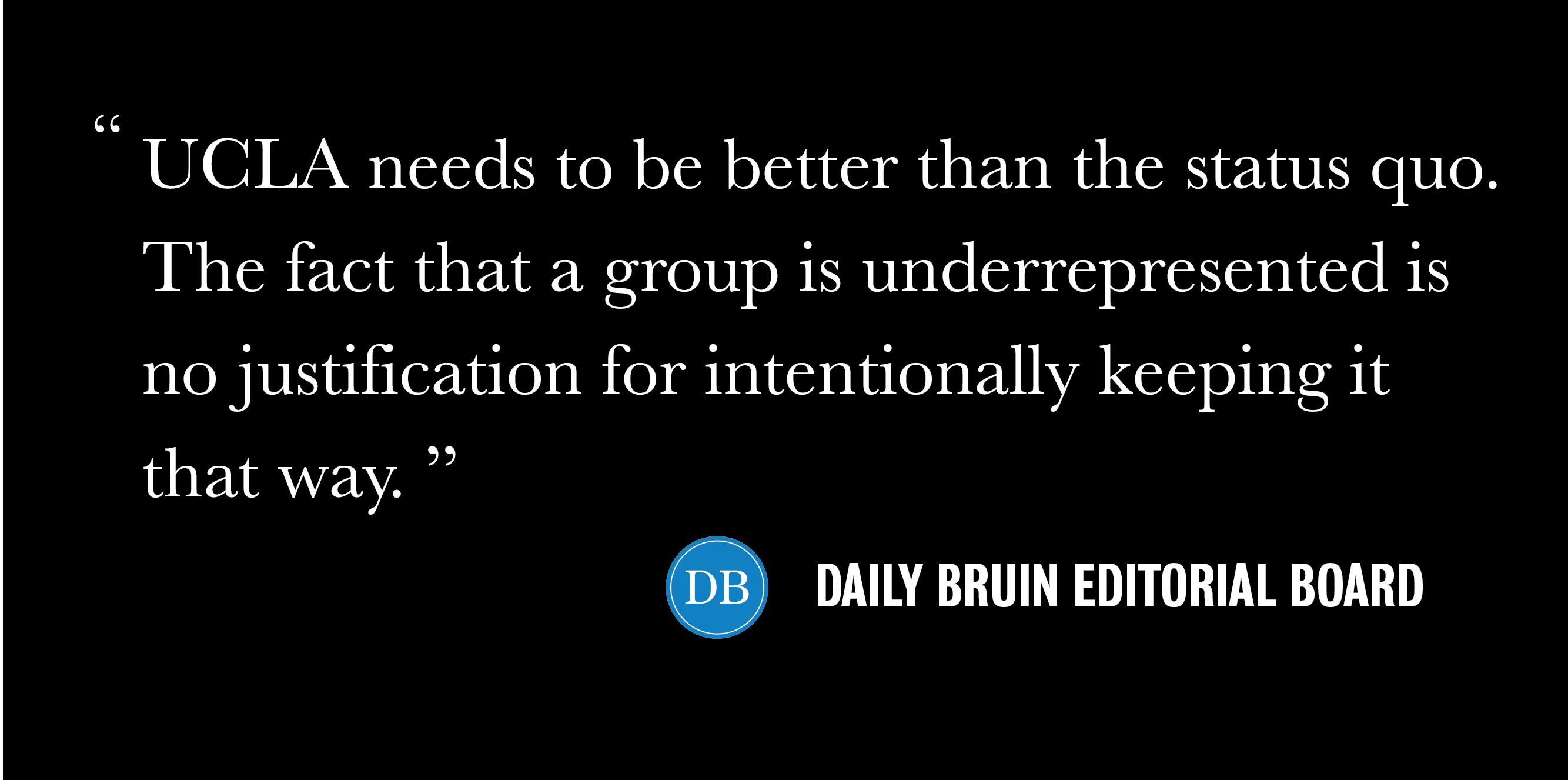Editorial: Lack of diversity in Geffen hiring process leads to lack of excellence

By Editorial Board
Jan. 27, 2019 10:55 p.m.
This post was updated Jan. 28 at 4:10 p.m.
The only thing worse than a lack of commitment to diversity is a lack of commitment to looking diverse.
The Semel Institute for Neuroscience and Human Behavior is struggling to show even that.
The acclaimed institute, which jointly conducts research and provides clinical services to Angelenos with mental illnesses, is choosing a new director and psychiatry chair. Per protocol, the position is being chosen by a faculty search committee, which vets and recommends faculty candidates for selection.
UCLA’s Office of Equity, Diversity and Inclusion, in an effort to promote more diverse hiring practices, has rules and recommendations surrounding search committees. The dean of the David Geffen School of Medicine implemented a rule requiring 25 percent of search committees’ members be women or from underrepresented communities
The Semel Institute’s 11-person committee consists of seven white men, three white women and one Latino man.
All the white committee members are doctors. The lone person of color isn’t.
The panel’s task: selecting a capable leader in the field of neuropsychiatry who can cater to an increasingly diverse Los Angeles populace.
It’s obvious why the community should be concerned about the David Geffen School of Medicine’s methodology for seeking out a capable leader of the Semel Institute. Providing effective patient care to institutionally neglected communities requires understanding the socioeconomic and cultural barriers individuals from these groups face.
That can’t be done by a committee pulled from the early 20th century. We all should be worried that school of medicine administrators, who claim to be committed to the institute’s excellence, still need to be told that.
Semel Institute faculty hinted as much when they piled into town halls earlier this month to share numerous frustrations with how Kelsey Martin, dean of the school of medicine, and Johnese Spisso, president of UCLA Health, have sought out the institute’s new leader.
Martin, for example, defended the search committee’s configuration because it meets university guidelines. Spisso then dismissed faculty members’ crucial questions about the committee’s composition.
Technically, they’re right: The committee is, in fact, less than 75 percent white men.
But that’s a facile way of running the most diverse department within the school of medicine. The City of Angels is not 90 percent white. And at a time when university leaders need to become more attuned to the exclusion of women and people of color, UCLA’s school of medicine is sending a troubling message that diversity is only worth it in the institution’s brochures and public relations, if even that.
And we need not peddle unproductive conflations of quality being sacrificed for the sake of having a more representative search committee: Administrators quite easily could expand the panel to make room for voices from the underrepresented communities UCLA claims to value.
Sure, the medical profession is, as a whole, composed primarily of white men. But prestigious institutions, including the National Institutes of Health and the Association of American Medical Colleges, already encourage diversity in their explanations of good practice. Even UCLA’s school of medicine states diversity is an “unequivocal component of excellence.”
UCLA needs to be better than the status quo. The fact that a group is underrepresented is no justification for intentionally keeping it that way. Moreover, including a wider variety of perspectives would help the committee evaluate candidates in ways reflective of the university and its surrounding community.
And if not for that, Martin and Spisso should improve the search committee’s composition to at least appear as though they’re committed to a more diverse hiring process.
Doing more than what’s recommended, after all, is expected of those seeking excellence.


